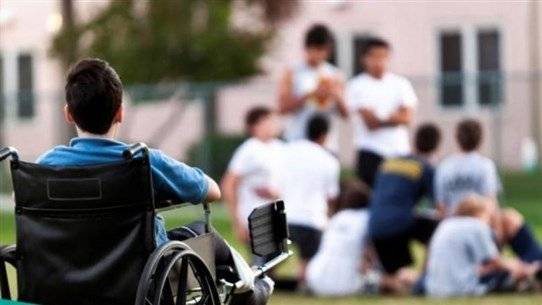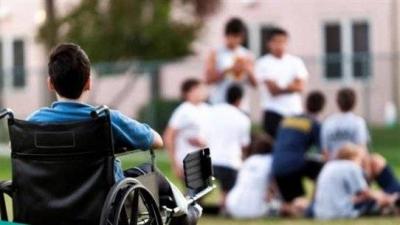Individuals with special needs will not be able to attend their classes, as this is dependent on the support of the organizations that care for them. Dozens of students will remain forgotten in their homes as they stand on the verge of losing their training centers, which are facing bankruptcy. Their fate is tied to the Ministry of Social Affairs, which holds the solution.
This is the first time Mohammed finds himself unable to enroll his son in a specialized school. A member of the security forces seems unable to afford the daily cost of 500,000 for his son's treatment and education at the Empowerment Association, which is dedicated to educating and treating such cases. Mohammed's son is 22 years old, and he has never felt as helpless as he does today; his son's education and treatment are at risk. "I can barely make ends meet with my salary of 80 dollars," Mohammed repeats today, crying bitterly, as he tries to support his son. However, "the state that has ignored those with strong determination is the reason," according to Mohammed. "There are few organizations that cater to people of determination; only one provides education, physical and occupational therapy, as well as skill development, which used to offer education and treatment almost for free. Yet, the absence of support has put us in a predicament."
Mohammed is certain that his son will remain at home if no resources are available, as the struggle doesn't stop with the costs at the association but also includes transportation, which requires a special budget, "And honestly, I can't afford it." Dozens of individuals with strong determination will not be able to join classes this year; their classrooms remain empty while they stay at home. They await October 3, the start of the school year, a date tied to support, and "if not, we will be delayed in opening the classes," says Basila Mansour, one of the officials at the Empowerment Association. It pains her, as she and the administrative team had prepared all arrangements for the students' return, to see their seats remain empty, with only their pictures adorning the closed doors. "We cannot do anything; everything is dependent on support."
The beginning of the school year at the Empowerment Association, which focuses on independent living for individuals with special needs, has been delayed and may prolong further unless the Ministry of Social Affairs releases the financial assistance that has been stuck for three years. All associations dealing with individuals with special needs are suffering, and their financial situation is dire. They face two options: either charge parents the full cost, which is impossible under the current economic conditions, or delay the start of the school year. This jeopardizes individuals with special needs, risking their last opportunities for education and skill development, especially since both public and private schools are not equipped to accommodate them, and the inclusion system for education has not been implemented. This group remains marginalized despite possessing unique skills.
In Nabatiyeh, there are three associations dedicated to individuals with strong determination: "Al-Imdad," which specializes more in rehabilitation and vocational training, "Ayoune Al-Baraa," and "Empowerment," which focuses on education, treatment, and training. These associations appear to be the most affected by the lack of support, as many of their teachers have left for other associations in search of higher salaries. The salaries of teachers and even physical therapists within these centers, which partner with the Ministry of Social Affairs, are still based on the 1,500-dollar rate, which will hinder the academic year’s commencement, according to the association's director, Rouhaya Ismail, describing the situation as "a crime against individuals with strong determination and the associations." She confirms that the ministry has not transferred financial assistance nor adjusted the operational costs according to the Sayrafa platform, hampering the association's continuity, and the bank only allows a withdrawal of 10 million Lebanese pounds per month, which is insufficient to provide fuel for the generator.
Ismail has addressed the association's suffering to the Ministry of Social Affairs, but "there's no one to respond." According to Ismail, "When we went to complain, it made them cry.”
The activities for individuals with strong determination within the occupational section are reportedly limited, and there is fear of losing the center, according to Fadi's mother, whose son undergoes affordable physical and occupational therapy at the association. She does not hide her anxiety about "having to stop her son’s sessions due to rising costs if the Ministry of Affairs decides to evade this issue."
Many stories unfold within the center; here, you meet a young man who lost his ability to move due to an accident, trying to overcome his circumstances, while elsewhere a girl receiving treatment for her legs strives to walk, and in another section, Youssef tries to acquire new skills to cope with his challenges. Only Ismail’s sigh emphasizes that everything could come to a halt, depriving them of the last vestiges of support. She points out that this group remains neglected and does not receive state care, without hiding the fact that the fate of students with disabilities and the associations caring for them hangs by a thread, dependent on the minister's and the Lebanese Central Bank's decisions.
Thus, the year for individuals with strong determination hangs in the balance as they face the academic year. All their cries over the past years have not availed them before a ministry that has failed to provide support for poor families in Lebanon, let alone for individuals with special needs.




